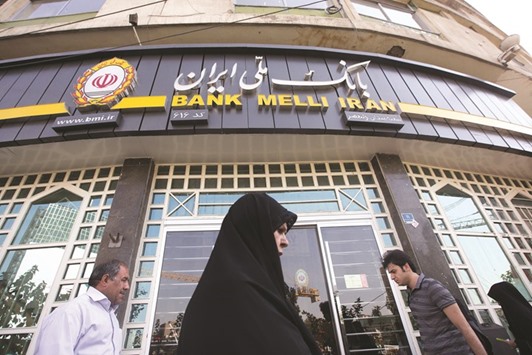The gradual opening of Iran’s economy to the world after the lifting of Western sanctions will not only shake crude oil markets, but expectedly also the Islamic finance industry since Iran is one of the largest players in terms of assets in Shariah-compliant banking.
While the Iranian banking system as a whole has been acting quite secluded from the rest of the world in the past due to the sanctions, and Islamic banking in Iran is presently not fully aligned with other important Islamic finance jurisdictions such as in the Gulf Cooperation Council (GCC) countries and Southeast Asia, the country is now definitely coming a step closer to change the status quo.
At the meeting of the globally influential Islamic Financial Services Board (IFSB), held on December 14 in Cairo, it was surprisingly announced that Iran‘s central bank will take chairmanship of the IFSB for the year 2017, a role that could turn out crucial for the country in its quest for inclusion into the global Islamic banking industry and for the alignment of its practices with peers across the GCC and Asia.
The Kuala Lumpur-based IFSB is one of the main bodies for Islamic finance that sets international standards and guidelines for banking governance, liquidity risk management and capital requirements. And with Iran’s central bank governor Valiollah Seif, an experienced banker who prior to his current role was managing director of major Iranian state-owned Islamic banks including Mellat, Saderat, Sepah and Melli, observers expect the dawn of a new era for Iran’s Islamic banks which are eager to re-enter the international capital markets.
In a first step, he is expected to push forward the adjustment of new sukuk products, which are currently in development by Iran’s Securities and Exchange Organization, towards international Islamic finance standards.
Iran, as per numbers provided by Reuters, has the world’s second largest base of Islamic finance assets or around $448bn as of March this year, matching itself with similar-levelled Saudi Arabia and ranking ahead of Malaysia which accounts for $434bn, a drop mainly attributable to the weakening of the country’s currency. Other sources, namely the chairman of Iran Banking Institute, Mehdi Razavi, even put Iran’s Islamic banking assets at no less than $518bn, which would make the country the biggest Islamic financial asset holder in the world.
As a matter of fact, reliable numbers are hard to come by since corporate governance and financial reporting of Iran’s banks has not implemented international accounting standards yet. For example, in another calculation according to Iran’s state news agency ISNA, of the $1.5tn in assets attributable to Islamic banking out of a total of global Islamic finance assets of $2tn, Iran holds 37% of the former amount which would put Iran’s Islamic banking assets at $555bn.
In any way, the influence and impact of an opening Islamic finance industry in Iran – which is the only allowed and accepted form of banking in the country – would be critical for the entire sector. Most of all, analysts expect a flood of US dollar-denominated sukuk issued by Iranian companies from many sectors, including manufacturing, hospitality, transport and other core industries to improve their facilities and resume international trade, as well as state organisations to fund infrastructure development programmes and power plants and provide much-needed investments in the petrochemical sector.
The biggest challenge, however, will be the alignment with established standards of other Shariah-banking jurisdictions because Iran’s variation of Islamic banking differs in certain areas from the ones practised in the GCC or Asia. For example, Iran’s Islamic banking system allows options and future contracts, both derivative instruments deemed as haram in most other Islamic banking systems. They are mainly used for crude oil and petrochemicals trading at the Iranian Oil Bourse and the Iran Mercantile Exchange.
The standards of the Bahrain-based Accounting and Auditing Organization for Islamic Financial Institutions, which are widely followed by Islamic banks around the world, are not enforced in Iran. Banks there also use salam, a deferred sale contract, which has been disallowed in other jurisdictions. There is also no real competition as the central bank is usually setting profit rates on lending as an inflation control measure.
Concerns have been raised that the amount of bad debt, incomplete financial reporting and the banks‘ close ties to the government will make it overly risky for foreign banks to deal with them at least in the transition phase towards internationally accepted banking standards. But analysts agree that there is big upward potential even if the process of aligning the different approaches could take years.

Pedestrians pass a Bank Melli Iran branch in Tehran (file). The gradual opening of Iran’s economy to the world after the lifting of Western sanctions will not only shake crude oil markets, but expectedly also the Islamic finance industry since Iran is one of the largest players in terms of assets in Shariah-compliant banking.
